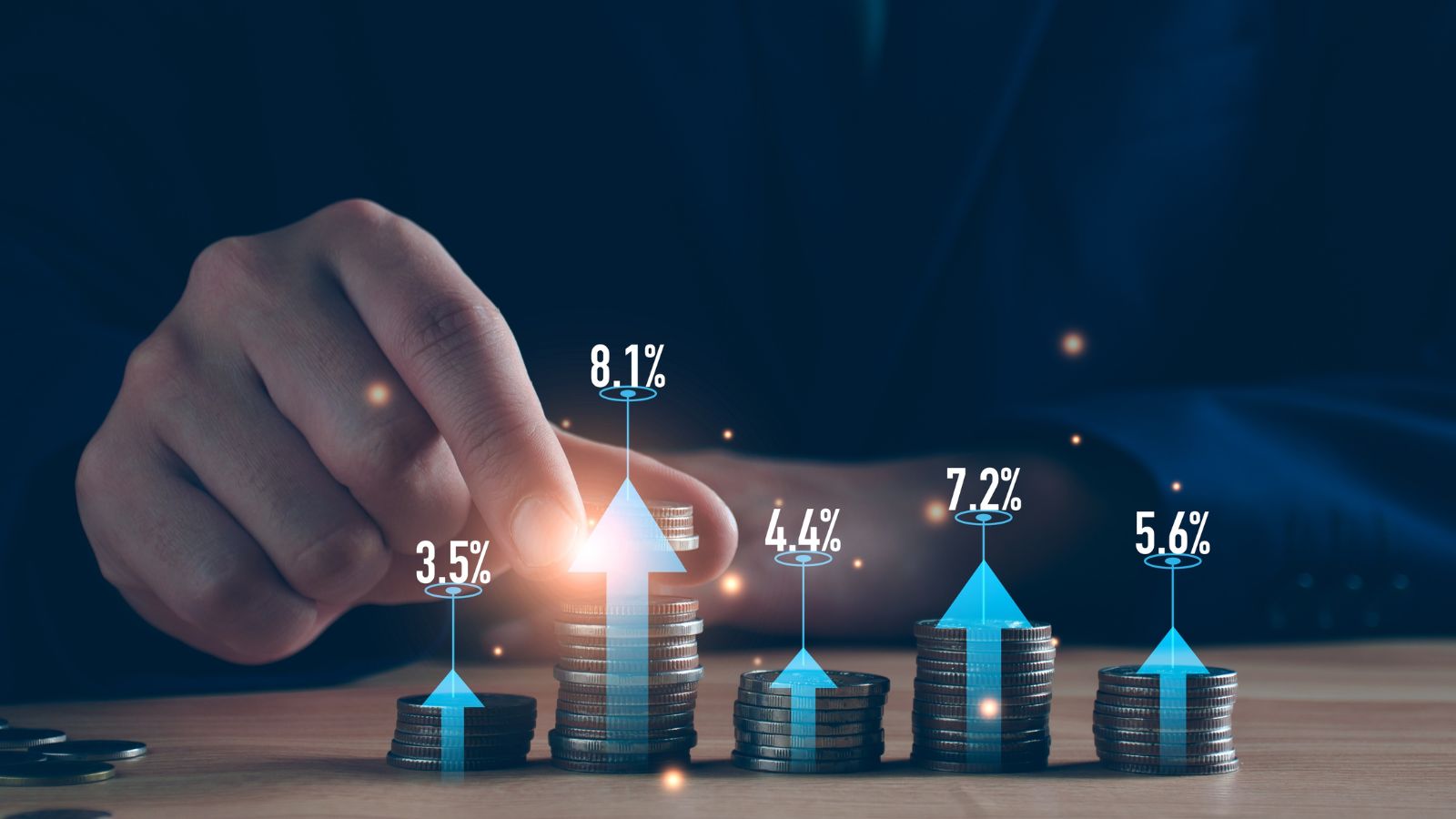If one thing is for sure this year and every year after it, it’s that we Brits will face inflation. This doesn’t just mean things become more expensive–if you don’t protect yourself from inflation through investments, your hard work and savings will be worth a lot less years down the line. To help you avoid this, here is a list of 17 investments that accountants claim will protect you from inflation.
Property

Of all the investments out there, property tends to serve as one of the strongest hedges against inflation, as property values and rental income typically increase with rising prices. Therefore, Schroders Global recommends investing in physical properties or Real Estate Investment Trusts (REITs), which can provide both capital appreciation and income. Obviously, real estate also offers the benefit of tangible asset ownership, so it’s a win-win.
Commodities

It’s a very smart idea to invest in commodities such as gold, silver, and oil, all of which can provide a buffer against inflation. Typically, these assets usually increase in value when inflation rises, making them tangible goods that maintain intrinsic value. So, if you’ve already got an investment portfolio but don’t own commodities, it’s time to change that.
Stocks of Dividend-Paying Companies

While stocks can be a good investment in themselves, the dividends that some companies pay to stock owners can be a reliable source of income, especially during inflationary periods. Firms with strong pricing power can pass increased costs onto consumers, helping maintain profitability. As a result, dividend stocks not only provide potential capital gains but also offer regular income that can outpace inflation.
Exchange-traded funds (ETFs)

Another investment that you shouldn’t overlook in the face of inflation is Exchange-Traded Funds, or ETFs, especially those focused on inflation-resistant sectors like energy, materials, and consumer staples. They can offer diversified exposure to assets that perform well during inflationary times while also providing a convenient way to invest in a broad range of securities, spreading risk without you having to manually diversify the portfolio yourself.
Premium Bonds

Here in the UK, we’re lucky enough to have access to premium bonds, allowing you to buy bonds in exchange for being entered into a lottery. Many people claim that this isn’t an effective way to protect yourself against inflation, as it comes down to the luck of the draw. However, if you max out the £50,000 limit, you’re likely to find yourself winning more cash than any savings account could guarantee you.
Foreign Currency Investments

Investing in foreign currencies, particularly those from countries with lower inflation rates, can help offset domestic inflation risks. Known as ForEx, this investment strategy can provide a hedge against a declining domestic currency, potentially offering gains when inflation erodes the value of your home country’s money.
Infrastructure Investments

It’s a very smart idea to invest in infrastructure assets like toll roads, utilities, and airports, at least if you have that kind of money. If you do, these investments tend to generate steady, inflation-resistant cash flows, and as such, government-sponsored, enormous projects are unlikely to become unprofitable.
Real Assets

Many people overlook real assets like farmland, timberland, and natural resources when investing, all of which have intrinsic value and appreciate during inflationary periods. These investments can provide both income and capital growth, acting as a buffer against rising prices. Real assets also offer diversification benefits, helping reduce overall portfolio risk.
Cryptocurrencies

While you should approach cryptocurrencies with extreme caution, strong tokens such as Bitcoin are highly likely to offer protection against inflation. Their decentralized nature and limited supply make them appealing to some investors looking for alternatives to traditional assets. However, at the end of the day, the high volatility of cryptocurrencies means they require careful consideration and risk management.
Energy Stocks

Energy stocks, especially those in oil and gas, often perform well when inflation rises, as energy prices usually increase during such periods. Investing in companies within the energy sector can provide exposure to a key area of the economy that typically benefits from higher prices, potentially boosting your overall returns.
Collectibles

On a different side of investment, collectibles such as art, rare coins, and classic cars can serve as an effective hedge against inflation, as their value often appreciates over time. These investments offer the potential for significant capital gains and can be a way to diversify a traditional portfolio. However, make sure you consult professionals regarding the value of such assets, as it’s easy for an enthusiast to overestimate.
ISAs

If your savings are just sitting there in a regular bank account, you’re missing out on a huge opportunity to protect yourself against inflation. Compare your interest rates to those of ISAs, and you’ll see what we mean. Sadly, there are usually low caps to the amount you can invest in an ISA per year, but they’re almost guaranteed to give you more impressive interest rates than regular accounts.
Foreign Property

We mentioned earlier how buying property is an excellent way to protect yourself from inflation, but if you want to take this to the next level, consider buying property abroad. If you recognize that a country is coming up with a booming economy despite it still having criminally low property prices, it could be a far more lucrative investment than buying property here in the UK. However, it is undeniably more complicated and risky.
Start-ups

While there is significant risk associated with investing in a start-up, the rewards can be truly outstanding. You should only approach such an investment if you are business-minded, keep up to date with the latest market trends, and are willing to take a gamble on an entrepreneur. However, if the company succeeds, inflation will never be something you worry about again.
Index Funds

Finally, accountants always recommend you utilize index funds to protect yourself against inflation. They track benchmarks like the S&P 500 and automatically update large portfolios to reflect the companies that make these up, providing regular folk a cost-effective way to invest in a wide range of companies. It’s not risk-free, but unless the world’s economy completely plummets, it’s highly likely that your index fund will protect you against inflation and then some.

